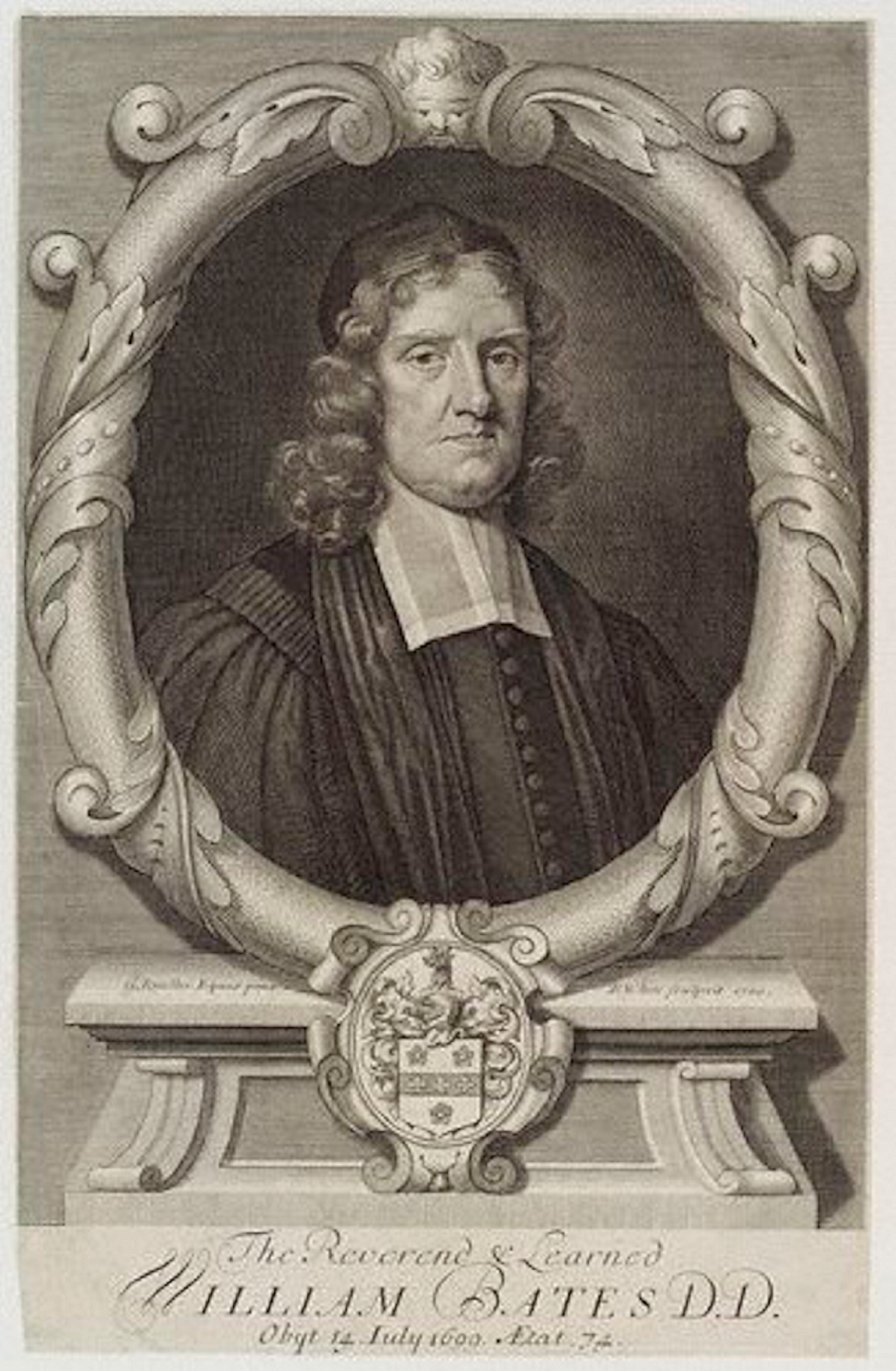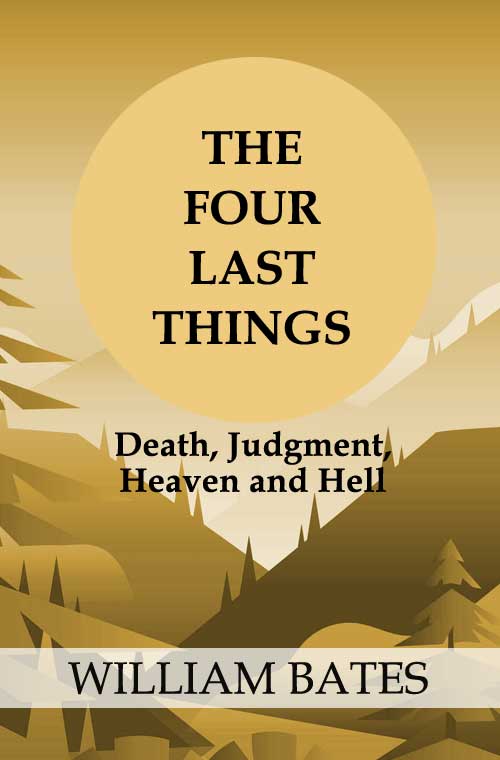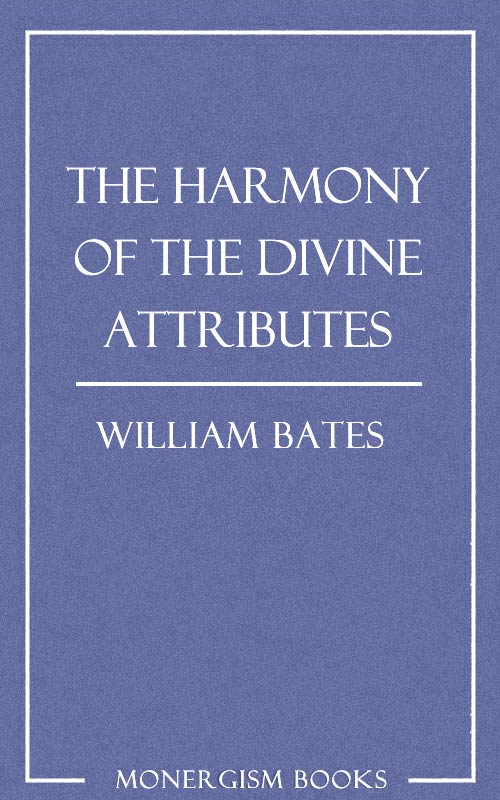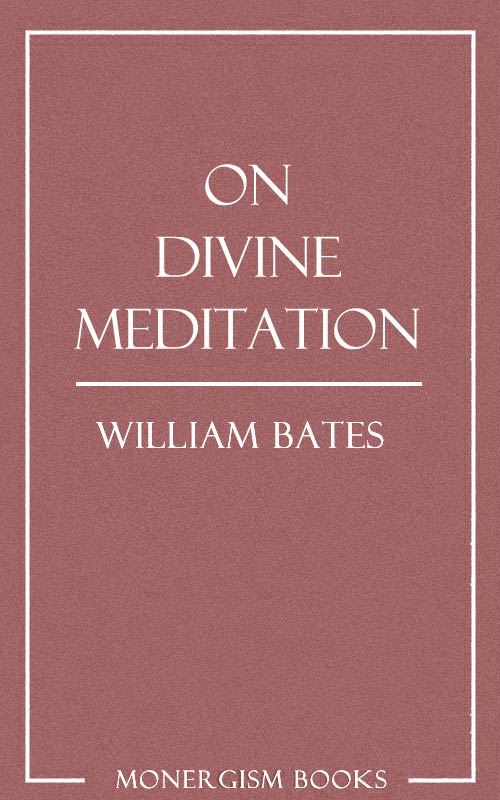William Bates (1625–1699) was an English Presbyterian minister. He was born in London in November 1625, and was educated at Cambridge, initially at Emmanuel College and subsequently (1644) at Queens’ College. In 1647 he proceeded B.A. He was a presbyterian. His first lived in St. Dunstan’s-in-the-West, London, and he remained as vicar until the Act of Uniformity 1662 was passed when he was ejected. He also took part with other evangelical clergy in carrying on a lecture series in Cripplegate church under the name of ‘Morning Exercise.’
In the negotiations for the restoration of Charles II, Bates took part. Royal favor came to him, and he was appointed one of the royal chaplains. In 1660 he acted as one of the commissioners of the Savoy conference. In 1661 Cambridge conferred on him the degree of D.D. by royal mandate. At the same time, he was urged to accept Lichfield and Coventry’s deanery. Still, like Richard Baxter, Edmund Calamy the elder, Thomas Manton, and others in their position, he declined the office. Later, Bates conducted a discussion between the nonconformists and John Pearson, Peter Gunning, and Anthony Sparrow. In 1665 Bates took the oath imposed by the parliament which met at Oxford ‘that he would not at any time endeavor an alteration in the government of church or state.’ In this, he was supported by John Howe and Matthew Poole, although Richard Baxter refused it.
In 1668 some of the more moderate churchmen endeavored to work out a comprehension scheme that would bring Presbyterians back into the Church of England. In this, Bates, Baxter, and Manton co-operated. But no agreement could be reached. A little later, he joined in presenting a petition to the king for ‘relief of nonconformists.’ His majesty received him graciously, but nothing came of it. Again in 1674, under the conduct of John Tillotson and Edward Stillingfleet, a new effort was made towards comprehension through Bates, but once more, nothing came of it. After the accession of James II, the disabilities and sufferings of the nonconformists increased. Bates was at Baxter’s side when George Jeffreys browbeat and insulted Baxter and his associates. He successfully interceded with Archbishop Tillotson on behalf of Nathaniel, Lord Crewe, bishop of Durham, who had been excepted from the act of indemnity of 1690.
On the accession of William III and Mary, Bates delivered two speeches to their majesties on behalf of the dissenters. In the last years of his life, he was pastor of the presbyterian church of Hackney. He died there on 14 July 1699, aged seventy-four, having outlived and preached the funeral sermons of Baxter, Manton, Thomas Jacomb, and David Clarkson. As a preacher, he was held to be ‘silver-tongued’ and the ‘politest’ of all the nonconformists. John Howe’s funeral sermon to Bates’s memory was printed with Bates’s works.
Wikipedia







